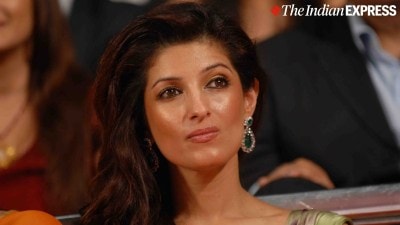Spin and tell
Last month, I did the unthinkable. I DJed a wedding. In the US, being a musician of any sort and playing at a wedding other than your best f...

Last month, I did the unthinkable. I DJed a wedding. In the US, being a musician of any sort and playing at a wedding other than your best friend8217;s is the most uncool, unhip thing to do. Think of Adam Sandler in The Wedding Singer. He was the laughing stock of the whole town. So I don8217;t do weddings unless they meet one of the following criteria: Celebrity, money a lot, or cool. The first two weren8217;t the reason I took this gig.
It was strictly for the cool factor. It was a Jewish wedding at a newly opened banquet hall of my favourite Punjabi dhaba in downtown Manhattan. How could I possibly say no? I realised how high maintenance the bride was when she wanted to call me to confirm that she had sent an e-mail with her song requests. I avoided giving my mobile number fearing she would abuse the privilege.
Anyway, we got there an hour early, carrying two disks with the couple8217;s requests on them. I didn8217;t have Hava Nagila, a traditional Jewish wedding song they wanted.
I proceeded to play my mix of eclectic global vibes with some Indian accents thrown in. But the bride-to-be wanted bhangra right away. I held off. There is nothing worse than playing good dance music before it is time; the track is simply wasted. An unspoken DJ rule: Don8217;t repeat yourself.
The night wore on, and I couldn8217;t help but feel that I was in some way selling my culture. The bride wore a red lehenga, chudiyan, mehendi, tika8230; the whole nine yards. Her two bridesmaids one white, one East Asian wore saris. It was comical to see desi finery worn with such little grace. Many of the guests wore bindis and chudiyan with their American gowns. There were only four desi guests and, ironically, none of them wore Indian clothes.
What also disturbed me were the many references to Israel in the traditional wedding ceremony. I couldn8217;t voice my pro-Palestine views even as all the Israel talk was going on in front of me, and that too, at a time when Gaza was in terrible turmoil. The night ended like any other private event I8217;ve DJed for previously, like the Salman Rushdie-Padma Laskhmi wedding or Billy Joel8217;s wedding.
Over the past 10 years as a DJ, many people have thanked me for preserving traditional music since I spin bhangra, among many other genres. I find such gratitude ironic. What would my great-grandmother say if she saw me playing music in a nightclub for people dancing and consuming alcohol? Would she feel I was preserving her traditions?
 What I am doing is acknowledging the positive and enjoyable part of my heritage. My heritage not only comes from Punjab/Pakistan/India where my parents and bhangra originate from, but also from growing up in New York. Experiencing the birth of hip hop was as significant a point in my life as the moment my mom got me a cassette of bhangra music from England when I was a teenager.
What I am doing is acknowledging the positive and enjoyable part of my heritage. My heritage not only comes from Punjab/Pakistan/India where my parents and bhangra originate from, but also from growing up in New York. Experiencing the birth of hip hop was as significant a point in my life as the moment my mom got me a cassette of bhangra music from England when I was a teenager.
For me, New York City is a Mecca of colliding cultures. My role as a DJ is to be a conduit in that mix. DJing is a way of communicating by exposing people to a variety of cultural frameworks through sound and space. In my work, what I do is as much about creating a space as it is about spinning music. The spaces where my audience listen to the sound are as important as the sound itself. For creating or rather recreating the experience of connection to one8217;s place of origin is as much an imagined experience as it is a likely reality. The place I am supposedly 8216;8216;taking them back to8217;8217; doesn8217;t really exist. A lot of bhangra music talks nostalgically about Punjab, where the music originated from. The reality is that it8217;s a farming state in the Third World. What I can do is take them to a place that they and I create together8212;one that combines my musical history, my travels and the technology I use to transmit the sounds.
As a British-born second generation desi as well as a native New Yorker, I understand that my influences are as complex and multi-layered as the people who dance at my parties. What I do is a journey. But I share the journey because it is my goal to take my audience on one as well. I am the medium, just another traveller passing on my finds.
- 01
- 02
- 03
- 04
- 05































